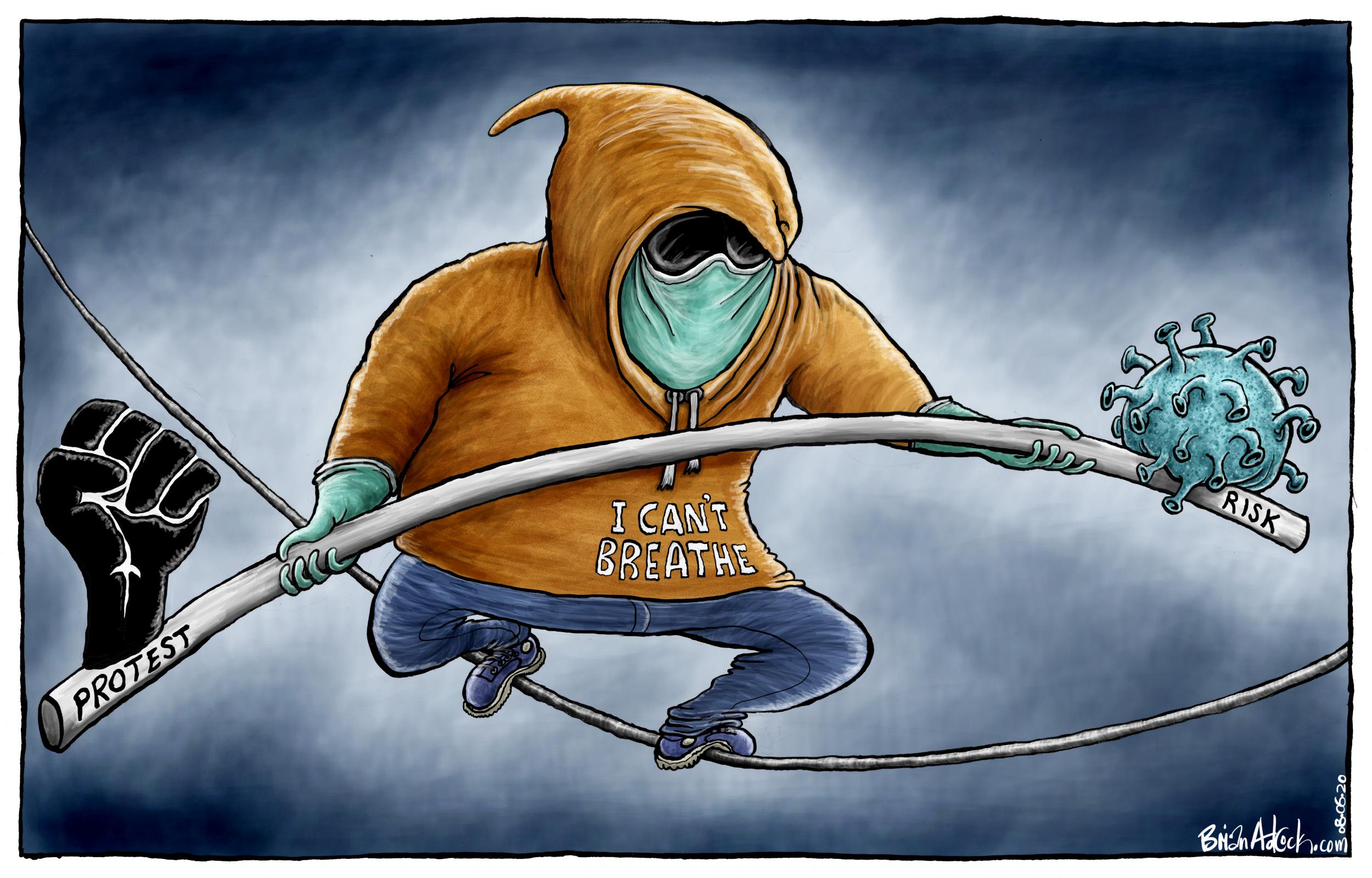The Black Lives Matter protests should awaken politicians to the fact that real change is needed – and urgently
Editorial: Black people in Britain are still twice as likely as white people to die in police custody, and yet no officer has ever faced any kind of prosecution over such a death

Mass protests do not always yield change, but they do have a tendency to illuminate the right side of history. There are few people around now who would argue that the hundreds of thousands that took to the streets in 2003 over the Iraq War had called it wrong.
The more than half a million who have marched against Brexit on more than one occasion are also highly likely to find themselves entirely vindicated in the not too distant future.
The scale of the Black Lives Matter protests that have spread all around the world from their gruesome beginnings on the pavement outside a Minneapolis deli reveal the depth of the problem, and the UK is no exception.
It therefore comes as no surprise that, for too many, the focal point of Saturday’s protests in central London has been the horrific scene in which a mounted police officer was injured when her horse ran underneath an overhanging traffic light. The letters “BLM” were also spray-painted in small letters on the base of the Cenotaph, next to a number of little offerings that were placed there.
These incidents have been deemed sufficient to disparage the cause in its entirety by many of those desperate to find a reason to do so. Donald Trump and his supporters have taken a similar, zero-tolerance approach to the protests in the United States, though they do not paint with such broad brush strokes with regard to the entire police force, when a few in their number are filmed on the streets in the act of violence.
Black British people are not killed at the hands of the police in anything like the same truly horrifying numbers year on year, as in the US – though that number need be no higher than one to be a stain on a civilised country. But black people in Britain are still twice as likely as white people to die in police custody and no UK officer has ever faced any kind of prosecution over such a death. The same is by no means true in the US.
There can be no more certain evidence that black people in the UK face systemic unfairness in the face of the criminal justice system than the fact that, four years ago, Theresa May said as much while standing outside 10 Downing Street on her first day in the job. “If you’re black, you’re treated more harshly by the criminal justice system than if you’re white,” she said. Her response, a year later, was to publish the Race Disparity Audit, bringing together clear data that showed, among other things, that black people were likely to face longer prison sentences than their white counterparts for the same crime.
At the time, the Race Disparity Audit was criticised for doing little more than collating data that was already widely known, and not doing enough – or even anything at all – to address a problem that had hardly gone unidentified beforehand. May’s mission to tackle “burning injustices” was overtaken by events; by the time of her going, almost all of them burned brighter than when she had arrived.
But the scenes of protest in London, and across the world, over the weekend should make it clear to see that systemic racial injustice will be tolerated no longer. Not just by the direct victims of such injustice, but by everybody.
African Americans make up 12 per cent of the US population, some 40 million people. In Washington DC, 46 per cent of the population is black. In the UK, black people make up only three per cent of the population. But what has become clearer in this latest wave of Black Lives Matter protests, and nowhere more so than in the UK, is that the cause has been taken up on a scale that far exceeds the limitations of demographics, which might have once been an excuse to evade action.
The pictures on our TV screens should make it clear to any politician that real change is required, and urgently.
Boris Johnson is already planning a major speech on how to “rebuild Britain” after the coronavirus pandemic. If he does not take the first opportunity to return to Theresa May’s burning injustices, he may find that the flames too large to be brought under his own control.
Join our commenting forum
Join thought-provoking conversations, follow other Independent readers and see their replies
Comments